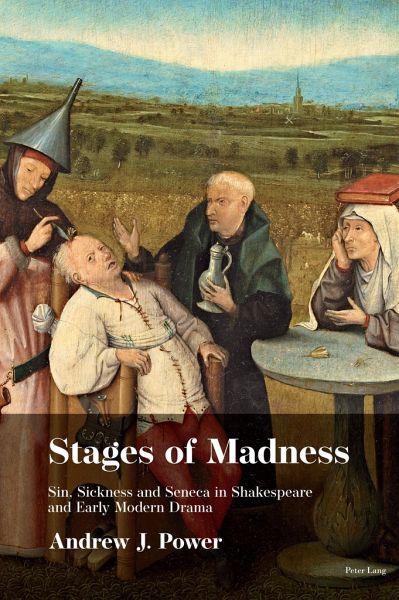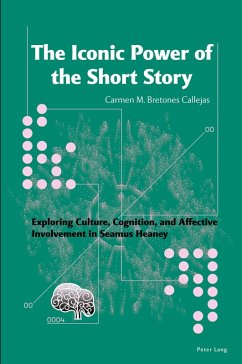
Stages of Madness
Sin, Sickness and Seneca in Shakespearean Drama
Versandkostenfrei!
Versandfertig in 6-10 Tagen
79,95 €
inkl. MwSt.
Weitere Ausgaben:

PAYBACK Punkte
0 °P sammeln!
«Stages of Madness is an important new study of the representation of madness on the early modern English stage. Rigorously researched yet also highly readable, Andrew J. Power's book provides original and compelling close readings of early modern plays such as The Spanish Tragedy and Hamlet while establishing a lineage of ideas about madness stemming from classical and medieval drama.»(Dr Rory Loughnane, Reader in Early Modern Studies, University of Kent)«Power propels the reader through an enlightened tour of madness. From the Bedlam-laden performance of Edgar in King Lear, through the sc...
«Stages of Madness is an important new study of the representation of madness on the early modern English stage. Rigorously researched yet also highly readable, Andrew J. Power's book provides original and compelling close readings of early modern plays such as The Spanish Tragedy and Hamlet while establishing a lineage of ideas about madness stemming from classical and medieval drama.»
(Dr Rory Loughnane, Reader in Early Modern Studies, University of Kent)
«Power propels the reader through an enlightened tour of madness. From the Bedlam-laden performance of Edgar in King Lear, through the schism-inflected demonic possession of The Comedy of Errors, to the furious revenges of Titus Andronicus, this book asks the biggest questions imaginable about the evolution of cultural understandings of how mind relates to self and how notions of sanity are constructed through the reflection of madness in religious and medical contexts.»
(Dr Timothy Ryan Day,Associate Professor of English, Saint Louis University - Madrid Campus)
In re-evaluating the contemporary staging of madness in the early modern period this book provides a clearer understanding and interpretation of characters who suffer from mental and emotional extremities in Shakespearean drama. It addresses three factors that contribute to early modern concepts of madness. These are theories of the «self» current and emergent in the late-sixteenth and early-seventeenth centuries; contemporary medical writings on madness; and the legacy of portrayals of madness from classical Greek and Roman drama, with a particular focus on the Roman tragedian, Seneca. The more complete understanding that this combined approach provides, facilitates a better-informed reading of Shakespeare's plays, plays that so often deal with mental and emotional extremities that were once thought of as «madness».
(Dr Rory Loughnane, Reader in Early Modern Studies, University of Kent)
«Power propels the reader through an enlightened tour of madness. From the Bedlam-laden performance of Edgar in King Lear, through the schism-inflected demonic possession of The Comedy of Errors, to the furious revenges of Titus Andronicus, this book asks the biggest questions imaginable about the evolution of cultural understandings of how mind relates to self and how notions of sanity are constructed through the reflection of madness in religious and medical contexts.»
(Dr Timothy Ryan Day,Associate Professor of English, Saint Louis University - Madrid Campus)
In re-evaluating the contemporary staging of madness in the early modern period this book provides a clearer understanding and interpretation of characters who suffer from mental and emotional extremities in Shakespearean drama. It addresses three factors that contribute to early modern concepts of madness. These are theories of the «self» current and emergent in the late-sixteenth and early-seventeenth centuries; contemporary medical writings on madness; and the legacy of portrayals of madness from classical Greek and Roman drama, with a particular focus on the Roman tragedian, Seneca. The more complete understanding that this combined approach provides, facilitates a better-informed reading of Shakespeare's plays, plays that so often deal with mental and emotional extremities that were once thought of as «madness».














